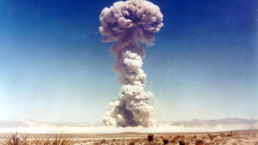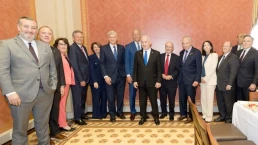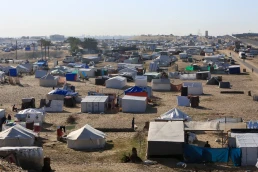A new round of nuclear talks will represent the most substantial Washington-Moscow contacts in months.
by Connor Echols, Responsible Statecraft
The end of the Cold War had an odd effect on U.S.-Russia non-proliferation efforts. With tensions between the two powers at a relative historical low, Presidents George W. Bush and Donald Trump broke with their predecessors and scrapped treaties that constrained the countries’ nuclear arsenals, which remain the world’s two largest by far.
The result? Only one U.S.-Russia nuclear agreement is still in place: the New START Treaty, which puts a modest cap on both Washington and Moscow’s ability to deploy strategic nuclear weapons.

As soon as President Joe Biden took office, he extended that agreement until 2026, but disagreements over inspections during the Covid pandemic, not to mention Russia’s decision to invade Ukraine, have left it in peril.
Luckily, that looks set to change. On Tuesday, the State Department announced that talks aimed at extending and strengthening the treaty will begin soon, marking the first such meeting in over a year. The news comes just days after the White House revealed that national security adviser Jake Sullivan has held secret meetings with top Russian officials in recent months.
Recent Posts
Why Are Democratic Lawmakers Still Meeting With Netanyahu?
July 12, 2025
Take Action Now Pictures show Democrats like Chuck Schumer standing next to Netanyahu, smiling.By Sharon Zhang, Truthout A bipartisan group of…
Stop Israel’s Dystopian “Humanitarian City” Plan—Before It’s Too Late
July 11, 2025
Take Action Now For the past 20 months, the world has watched—and largely enabled—a genocidal campaign in Gaza. Over 55,000 Palestinians have been…
The “Liberal” International Order Is Criminalizing Palestine Protests
July 11, 2025
Take Action Now As Western governments repress Palestine solidarity and enable Israel’s impunity, the “liberal international order” is no longer…
Politicians Are Betraying Gen Z On Climate
July 10, 2025
Take Action Now While Gen-Zers thrift, knit, crochet, and find other ways to reduce our footprints, Trump and the GOP are greenlighting more climate…




